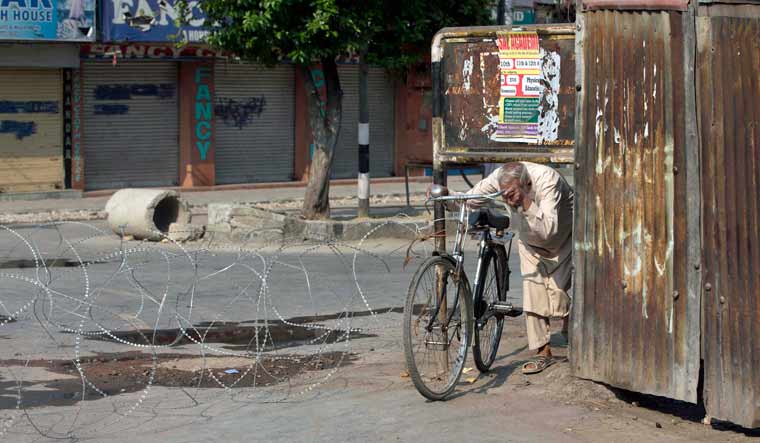Many Kashmiris demand azadi (independence ) for Kashmir. Some non-Kashmiris, like some of the students in Jawaharlal Nehru University (JNU), back this demand. In order to examine the justification for this demand, certain basic concepts need be cleared up.
The test of every political act or system is one, and only one: does it raise the standard of living of people? Does it offer them better lives? Keeping this firmly in mind, it is evident that azadi cannot be an end in itself, it can only be a means to an end. The end must be raising the standard of living of the people, and giving them better lives. If azadi leads to this end, it should certainly be supported, but not otherwise.
Let us take a historical example. Kashmir was independent till 1587 when the last independent ruler, Yousuf Shah Chak, was deposed by Mughal Emperor Akbar, and Kashmir was incorporated into the Mughal Empire, the capital of which was Agra.
Now this deprivation of azadi in 1587, far from harming Kashmiris, benefited them, because it resulted in improved standard of living. By becoming part of the Mughal Empire, Kashmiri handicraftsmen got a huge market in India for their handiwork, like pashmina shawls and carpets. Kashmir got a share of the huge resources of the Mughal Empire, with which great works like the Mughal gardens (Shalimar, Nishat and Chashme Shahi) were built. There can be no doubt that Mughal rule benefited Kashmiris. It was like the incorporation of many parts of Europe into the Roman Empire, which, while depriving people there of their freedom, in fact benefited them because of the Roman technology, roads and aqueducts among others.
So, I appeal to Kashmiris to go a bit deeper and stop parroting azadi and talking of UN resolutions in the abstract.
What is the ideology of separatists and militants in Kashmir? It is Islamic fundamentalism. So, if Kashmir becomes independent today, it will be hurled back into the Middle Ages; Sharia law, in all its barbarity, will be imposed and women will be compelled to wear the burqa.
Consider another aspect. Kashmir today has a massive handicraft industry, and this has a huge market in India. Almost every one of the hundreds of towns in India has shops run by Kashmiris, who bring their handicrafts from Kashmir and sell them there.
Now what would happen if Kashmir were to become independent? This huge market would be lost as Kashmiri traders would not be able to come to India without a visa, which would be very difficult to get. The result would be shutting down of much of Kashmiri handicraft industry, throwing hundreds of thousands of people out of employment. Has this been considered by those demanding azadi?
also read
- Strict vigil in Kashmir’s border districts ahead of Lok Sabha polls
- Ten dead as taxi falls into gorge on Jammu-Srinagar highway
- AFSPA revocation: Promise made in view of polls, says Omar; ‘better late than never,’ says Mehbooba
- J&K: Kashmir police, security forces bust Jaish-e-Mohammad module in Srinagar, 4 held
- ‘Betrayal of people’: Uproar in J&K over delayed assembly elections
I have always strongly criticised atrocities against Kashmiris by Indian security forces. Although I am a Kashmiri Pandit, my DNA is the same as that of Kashmiri Muslims, who I regard as my brothers and sisters. So, I feel their pain when they face troubles like the recent communication blockade. I have helped creating the Chinar Foundation for uniting Kashmiri Hindus, Muslims and Sikhs (for details contact Fauzia Jalali at fauziasyeda5@gmail.com).
Nevertheless, I appeal to Kashmiris to reconsider their demand for azadi. The correct demand, in my humble opinion, would be reunification of India, Pakistan and Bangladesh (see indianreunificationassociation.co.in ) under a secular government, which when attained, will automatically solve the Kashmir problem.
Justice Markandey Katju retired from the Supreme Court in 2011
(The opinions expressed in this article are those of the author's and do not purport to reflect the opinions or views of THE WEEK)



